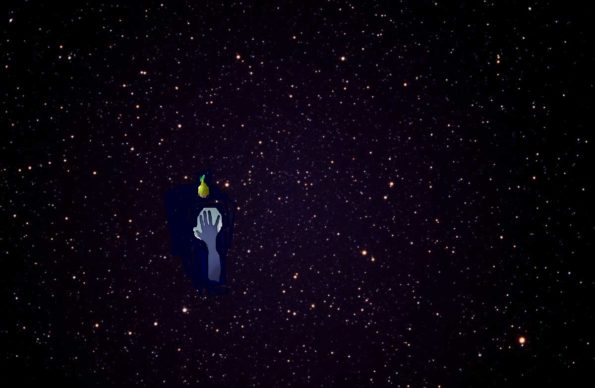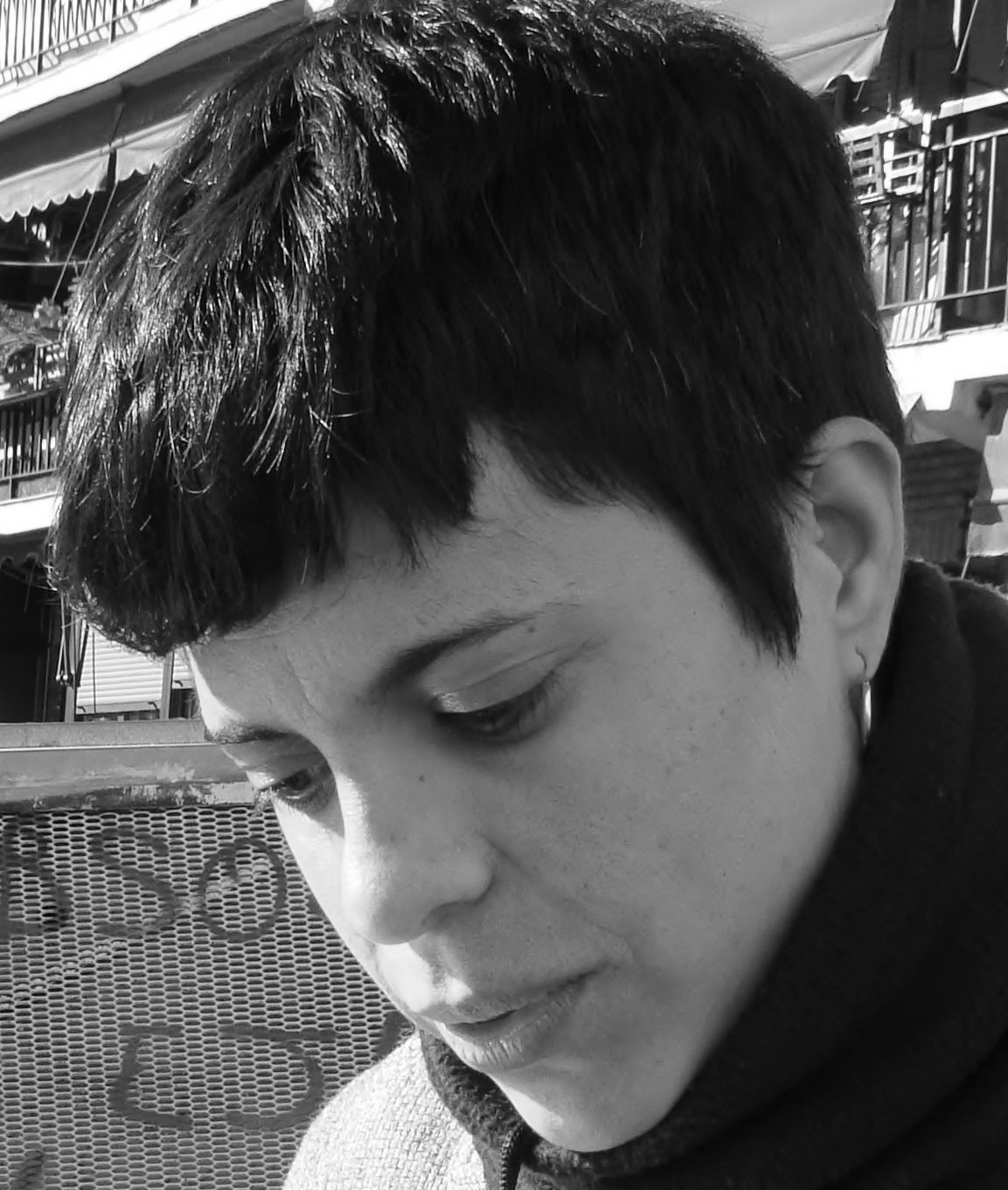Search
To search for an exact match, type the word or phrase you want in quotation marks.
A*DESK has been offering since 2002 contents about criticism and contemporary art. A*DESK has become consolidated thanks to all those who have believed in the project, all those who have followed us, debating, participating and collaborating. Many people have collaborated with A*DESK, and continue to do so. Their efforts, knowledge and belief in the project are what make it grow internationally. At A*DESK we have also generated work for over one hundred professionals in culture, from small collaborations with reviews and classes, to more prolonged and intense collaborations.
At A*DESK we believe in the need for free and universal access to culture and knowledge. We want to carry on being independent, remaining open to more ideas and opinions. If you believe in A*DESK, we need your backing to be able to continue. You can now participate in the project by supporting it. You can choose how much you want to contribute to the project.
You can decide how much you want to bring to the project.

The participants in the festival become contemporaries of the mythical event. In other words, they emerge from their historical time – that is, from the time constituted by the sum total of profane personal and interpersonal events – and recover primordial time, which is always the same, which belongs to eternity.
Mircea Eliade, The Sacred and the Profane
Pachakuti or pacha thijra is a turn in time/space, the end of one cycle and the beginning of another, when an ‘upside-down world’ can stand on its own two feet again.
Silvia Rivera Cusicanqui, Un mundo ch’ixi es posible. Ensayos desde un presente en crisis
There are some extraordinarily long stones on the Bank islands called devouring spirits because they contain powerful and highly, highly dangerous 3-D ghosts. If someone’s shadow falls on one of these stones, the spirit draws out his soul and the person dies. These stones are therefore placed at the entrance to homes so they can act as cosmological custodians. A messenger sent by the owner of the house in his absence will recite out loud the name of the proprietor who sends him, in the fear that the watchful stone spirit might think his intentions were bad and harm in in some way.
Animism is linked to the soul, to the presence of manna in the living and non-living, human and non-human bodies that inhabit the world. Animism is
spirit, soul, conscience, life.
Stones, stale bread and shadows. The extraordinarily long stones are inhabited by devouring spirits that are able to shape symposiac processes with shadows when they come into contact with them. And the stones and stale bread are mediations that have access to areas where {EUrocentric] human activity is scarcely known on the planet.
((( pebbles ))))
The shadow is a medium. A flux of fluxes without light that form a bridge of bright salt between human beings and extraterrestrial (outer space) forces absorb the vital secretion, gobble down the soul of the carriers of neoliberal-incandescent micro-parasites. They gobble down the soul, transforming it into 3-D cultural and symbolic capital 3D, fodder for Twitter, Facebook and Instagram. Shadows, however, are also objects of protection. Their actions are designed to watch over homes. Stones, the stones that are hurled by rebellious girls against the police at demonstrations, the same stones the girls throw across water to watch the circles that are formed as they sink, those with which Virginia Woolf and Pinocchio filled their pockets in order to drown their bodies made of bones, muscles and wood, in the water. Stones, the stones of the world, stale bread, the stones of bone and wood are inhabited by manna that acts powerfully as soon as it comes into contact with other surfaces. Stones, the shadow, spirits. Stones, stale bread. Stones, stale bread, the shadow.
At nightfall, we, the little girls of the islands, scream out loud the name of the owner of the house, i.e., the proprietor. We scream in order to deceive the 3-D ghosts. 3-D ghosts made of pieces of plastic, oil and copper. The 3-D ghosts are the great-grandchildren of Pedro Fernández de Quirós, commander of the Spanish expedition that reached the islands in 1606: t-h-e-y-k-i-l-l-e-d-l-i-f-e-o-r-r-a-t-h-e-r-t-h-e-y-b-e-l-i-e-v-e-d-t-h-e-y-c-o-u-l-d-k-i-l-l-l-i-f-e-b-u-t-t-h-e-t-r-u-t-h-i-s-t-h-a-t-t-h-e-y-h-a-v-e-n-e-v-e-r-b-e-e-n-g-i-v-e-n-t-h-e-s-e-c-r-e-t.
Stale bread and stone and shadow.
At nightfall, we, the little girls of the islands, scream with a metallic howl the name of the owner of the house, i.e., of the Proprietor with a capital P of the Penthouse to let/Police force/Protector/Palm strokes when you shut up/Promissory note and trade receipt/Paleface/Punishment when you don’t/Pact of State/fortnightly Pay only if you’re good/the day will come when you shall Put up with the fire of hell my daughters/. Capital P. P P P. We, the little girls of the islands, have planned to create a fierce language intended to recover P’s manna, provoke an alchemical reaction to transform P into an elongated rock, our pebble that protects us from bad spirits. We scream in order to deceive the 3-D ghosts, but we also scream in order to deceive the Proprietors. In other words, we scream in order to trick our family, private property and love. They say that the wolf says though it’s not the wolf but the 3-D ghosts, great-grandchildren of Pedro Fernández de Quirós who says that he says
:::
welcome little girls, but don’t come near my classrooms
welcome little girls, but don’t come near my street
welcome little girls, but don’t come near our art institutions
welcome little girls, but don’t come near my books
welcome little girls, but don’t come near my city
welcome little girls, but don’t come near my family
welcome little girls, but don’t come near
welcome little girls, but don’t come near my shops
welcome little girls, but don’t come near my Instagram
welcome little girls, but don’t come near my State
welcome little girls, but don’t come near my Spotify list
welcome little girls, but don’t come near my mono/poly/amorous sex life
welcome little girls, but don’t come near my tribe of beautiful and happy young female friends
welcome little girls, but don’t come near the shores of my Mediterranean beaches
welcome little girls, but don’t come near my health centre
welcome little girls, but don’t come near my shadow
welcome little girls, but don’t come near my stone
welcome little girls, but don’t come near
Above all, don’t come near at dusk.
Dusk, mediating between day and night, is a lapse of time/space in which shadows fade, swallowed up by the great-mother-shadow to acquire the beautiful power of becoming visible only when they are illuminated by heavenly bodies and stars, industrial lights, candles, fires and artifices. We, the little girls of the islands, scream at dusk. At twilight there’s an interval in which time and space are thrown into confusion and there’s a passing disturbance. A carnival — up and down, in and out, light and dark are inverted. Let me be quite clear: inverted in the sense of being over the top, turning the tables, in other words, chaos, i.e., a transformation of perspective in which the objects represented on a stage are placed between the projective point and the plane of observation enabling an effect. A visual effect in which the objects furthest away from the visual plane are drawn larger, and those that are closest are drawn smaller, in contrast with more conventional linear perspective, in which the closest objects appear larger than they are.
At dusk, lullabies are sung, stones are put in place, the fire is lit, the dough is prepared for making the bread. At twilight, we, the little girls of the islands, get together in the forbidden rooms of our homes and trigger the memory of mother Tránsito Amaguaña, who intends to dismantle the hetero-euro-capital-colonial-patriarchal system once and for all. At dusk, the dogs howl nervously, preparations for the homecoming are made, birds make love and sing, the beginning of the return is produced: coming home, to oneself, to intimacy. The night is yours, ours is the twilight. Before nightfall. Stones, stale bread. Before nightfall, in the kitchen my mother would serve my brother and me bread and warm milk with cocoa, spiced pudding and brown sugar, she would lull my brother to bed in his cot, accompanying him with her chant, enabling those who are awake to slip into the world of slumber: Sleep, sleep little black boy, your mother’s in the field, little black boy. Sleep, sleep little black boy, your mother’s in the field, lad. She’ll bring you quails, she’ll bring you tasty fruit and pork, she’ll bring you lots of things, and if the black boy doesn’t fall asleep, the white devil will come and whack!, he’ll eat his little leg chika puma chika puma, chika puma, chika puma. When my brother woke up, it was the end of the world. The end of our world as we had known it up until then. Where were the stones? We, the little girls of the islands, would meet at dusk, raise our arms and invoke the name of Mircea Eliade — is this the expulsion from paradise?
We, the little girls expelled from paradise who inhabit the islands, scream: if resistance is the resistance of things to the intentions of human beings, dusk is the resistance of the day to become night. Twilight is total resistance. The stone, the stale bread, the shadow are ours. We scream that there is a world that precedes another world, an impossible world that precedes another impossible world. A world that only precedes the following world because there is a twilight. We, the little girls of the islands meet secretly at dusk, drink eau-de-vie and pact with the elongated stones, with the 3-D shadows, with the birds. We, the little girls expelled from paradise, have learnt to design cosmo-political rituals because we know that all the air vanishes in the solid, that the shadows fade, swallowed up by the great-mother-shadow to acquire the beautiful power of only becoming visible when they are illuminated.

mafe moscoso. mishu born in a banana republic. teacher and researcher. explorer of the world through writing, ethnography and art.
"A desk is a dangerous place from which to watch the world" (John Le Carré)